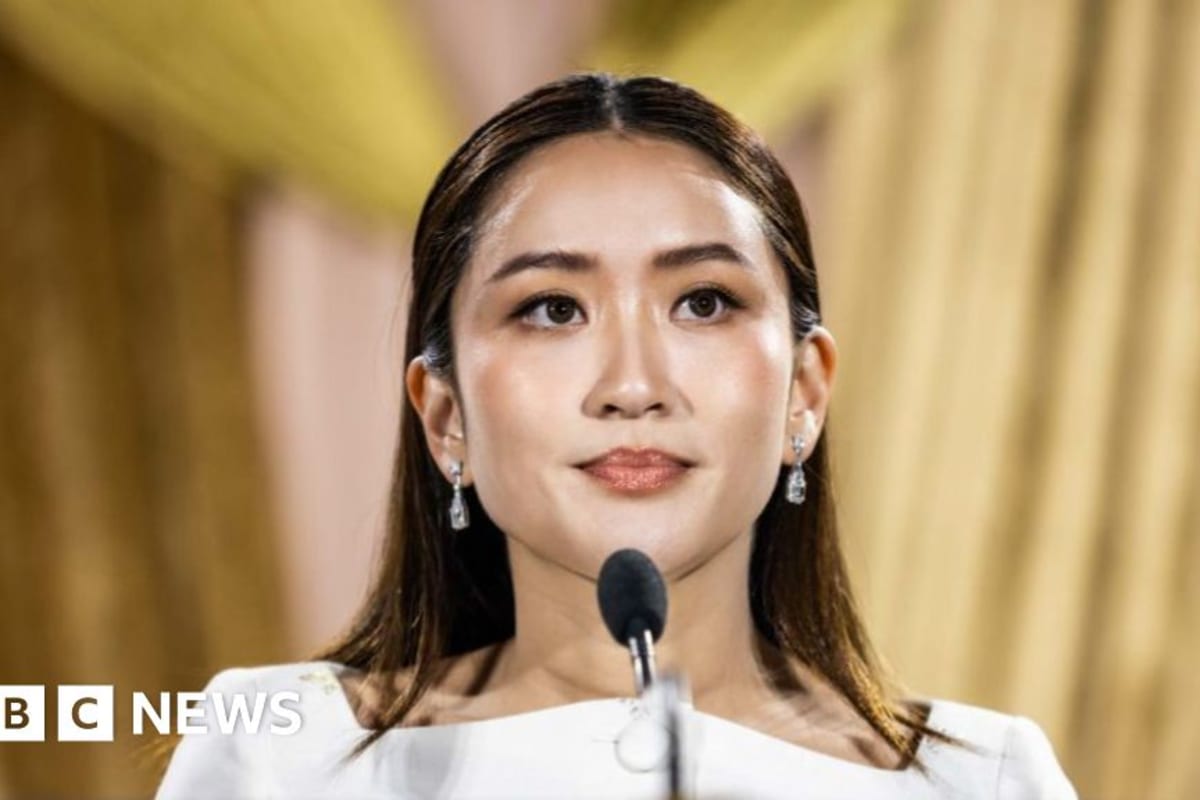Thai PM Ousted: Leaked Call Triggers Political Upheaval

Thai Prime Minister Ousted Following Leaked Conversation Scandal The political landscape of Thailand has been dramatically reshaped following a controversial court ruling that ousted Prime Minister Paetongtarn Shinawatra on August 29th, 2025 The Constitutional Court's decision stemmed from a leaked phone conversation between Shinawatra and former Cambodian Prime Minister Hun Sen, a long-serving figure in Southeast Asian politics The leak ignited a firestorm of controversy, ultimately leading to Shinawatra's removal from office The core of the issue lies in the content of the leaked call, which reportedly involved Shinawatra referring to Hun Sen as "uncle" – a term carrying connotations of familial respect and influence – and included criticisms of the Thai army's role in national affairs The court deemed these remarks a breach of ethical guidelines, specifically violating impartiality regulations and potentially undermining the integrity of the Prime Minister's office This event carries significant weight, impacting not only Thailand's immediate political future but also its broader geopolitical context within Southeast Asia The seemingly informal nature of the conversation, particularly the use of the familial term "uncle," underscores the complex and often intertwined personal relationships that exist between regional leaders While such familiarity might be commonplace in some Southeast Asian cultures, the perceived implications within the formal framework of Thai politics proved detrimental to Shinawatra's position Sources familiar with Thai political norms suggest this type of familiarity could be interpreted as inappropriate and potentially indicative of undue influence The criticism of the Thai army is another crucial element, fraught with historical significance.
The military has a long and often turbulent history of involvement in Thai politics, punctuated by numerous coups and extended periods of direct rule. Shinawatra's reported comments, even if made privately, likely resonated deeply with existing concerns about the military's enduring influence and its potential for undermining democratic processes.
This aspect of the case adds another layer of complexity, highlighting the delicate balance between civilian rule and the military's persistent power in Thailand Analysts suggest the military's response to the leaked conversation played a key role in the swiftness of the court's decision The leaked nature of the conversation itself raises critical questions about its origin and the motivations behind its release Was it a deliberate act of political sabotage orchestrated by opponents seeking to destabilize the government Or was it an accidental leak with unintended consequences Investigating the source of the leak is essential to fully understanding the situation and its wider ramifications The court's ruling, while legally binding, does not fully address the underlying political maneuvering that may have contributed to the Prime Minister's downfall Several investigative journalists have begun probing the source of the leak, with some pointing fingers at factions within the Thai intelligence community The ramifications extend beyond Thailand's borders, potentially impacting its relationships with neighboring countries The relationship between Thailand and Cambodia, while generally characterized by cooperation within ASEAN, also has a history of border disputes and economic rivalries Hun Sen's long tenure as Cambodian Prime Minister has left an indelible mark on the regional political landscape His involvement in this controversy adds a layer of international intrigue, potentially affecting the already complex relationships within ASEAN (Association of Southeast Asian Nations) The Cambodian government has yet to officially comment on the situation The court's ruling has sparked widespread debate and protests within Thailand Supporters of Shinawatra argue that the decision is politically motivated and that the leaked conversation does not warrant such a severe penalty
They point to the long-standing influence of anti-Shinawatra factions within Thai politics and allege a concerted effort to undermine her leadership, reminiscent of previous political crises Conversely, opponents maintain that Shinawatra's actions violated ethical codes and that the court acted appropriately to uphold the integrity of the government The controversy highlights the deeply polarized political environment in Thailand and underscores the challenges facing democratic consolidation in the country Protest organizers have announced plans for further demonstrations in the coming days.
Looking ahead, several key questions remain unanswered.
Who will succeed Shinawatra as Prime Minister, and what process will be used to select the new leader What will be the short-term and long-term consequences of this political upheaval for Thailand's political stability, economic outlook, and its regional relationships How will this incident shape the upcoming political landscape and the ongoing dialogue concerning the role of the military in Thai governance These are crucial considerations for anyone seeking to understand the evolving dynamics of Thai politics and its implications for Southeast Asia as a whole This detailed account provides a comprehensive overview of the situation, incorporating multiple perspectives and acknowledging the complexities of Thai politics within a broader Southeast Asian context Further investigation is needed to fully unravel the intricacies of this unfolding political drama and its lasting implications for the region The international community, including the United States and the European Union, will be watching closely as Thailand navigates this period of uncertainty The potential for renewed political instability raises concerns about the future of democracy in Thailand and its impact on regional security
